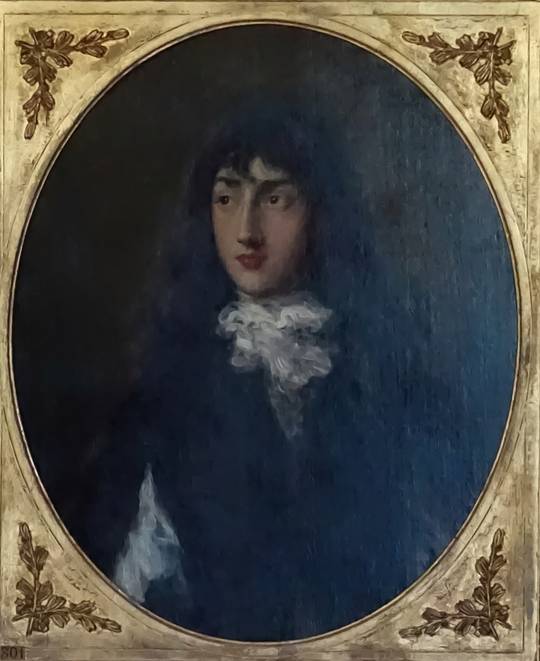George Canning (1770-1827) President of the Board of Control, 1816-21. Foreign Secretary 1807-9, 1822-27. Prime Minister, 1827. Canning was the son of a failed businessmen and radical barrister of aristocratic background and an actress, who went back on the stage to support herself and him in childhood. (It was Grey who said his actress parentage ‘disqualifies him, ipso facto, from becoming Prime Minister’.) He was brought up by his uncle, Stratford Canning, a Whig merchant (and father of the diplomat Stratford Canning)1 and educated at Eton and Christ Church College, Oxford, where he was a contemporary of Liverpool and a Whig.
Having witnessed the worst excesses of the French Revolution, Canning changed sides and entered Parliament in 1793 as a dedicated Pittite, though Lady Holland thought still that ‘he is, in his heart, the veriest Jacobin that is’2. Pitt quickly marked him as his political heir; there was none of the ambivalence Pitt felt for Charles Jenkinson and Liverpool. Canning beat Liverpool to high office, being made Under Secretary for Foreign Affairs in 1796-99, followed by the lucrative office of joint Paymaster General in 1800-1.
Canning resigned with Pitt and opposed Addington, then returned to Pitt’s second ministry in 1804 as Treasurer of the Navy. Having built up a substantial following of 25-30 MPs and established himself as a liberal Tory, favouring Catholic Emancipation, he was actively courted by Grenville in 1806-7, then joined Portland’s administration as Foreign Secretary. Always the intriguer, he attempted to seize the reins of government in 1809, only to lose office after a duel with Castlereagh. He attempted unsuccessfully to form a coalition government with Wellesley in May 1812, then Liverpool offered him the Foreign Office, which he rejected because it came without the leadership of the House of Commons.
Canning’s followers were decimated in the 1812 election and his return to government in 1814 involved only the Ambassadorship to Portugal. He returned to the Cabinet in 1816 as President of the Board of Control but resigned in 1820 because of his support for Queen Caroline (with whom he was rumoured to have had an affair many years earlier – George IV appears to have believed that rumour). He accepted the Governor Generalship of India in 1822 (over the opposition of his wife according to Croker)3 and was very slowly preparing to leave for India when Castlereagh’s suicide radically improved his prospects and led Liverpool to offer him the Foreign Office, combined with the leadership of the House of Commons.
As Foreign Secretary, he reversed most of Castlereagh’s policies. He was hostile to the European powers and sought to build relationships with the newly independent states of South America. This involved him in considerable conflict with Wellington and much of the Cabinet, which conflict was envenomed by his deviousness. On domestic policy, he was a moderate liberal, which was less contentious, and took almost no part in economic discussions, either in the financial crisis of 1825-26 or on the Corn Laws the following year.4 When Liverpool resigned in 1827, Canning attempted to form a government on the same principle of neutrality on Catholic Emancipation that Liverpool’s had held. However, Wellington, the liberal but ‘Protestant’ Peel and several other former ministers refused to join him and he formed a coalition with the Whigs (which may have been his preference all along). His death only four months later and Goderich’s subsequent feebleness caused the failure of this experiment.
Well before Canning came into political conflict with her hero Wellington, Mrs Arbuthnot saw through him, saying in May 1821, when he appeared no significant threat to her friends, that he was ‘always intriguing and having some dirty under-plot’5. The sanctification of Canning by Victorian Whig historians and their successors is unforgiveable; his erratic political career indicates that he was deeply distrusted by almost all his contemporaries and disliked by many of them.
Liverpool rescued Canning’s career on several occasions and remained good friends with him but close contact after 1822 brought disillusion with his qualities as a colleague. In December 1826 he told Mrs Arbuthnot:
I am on the best possible terms with Mr. Canning; we are cordial and friendly to the greatest degree, but you must be aware that being in office with Mr. Canning is totally different to what it was with poor Londonderry. Then every thing was calm and tranquil and nothing to worry one about trifles, but I have not strength and nerves to bear Mr. Canning’s perpetual notes. … I live in continual dread every time the door opens that it is to bring a note from Mr. Canning, till I am driven half distracted.6
[1] Stratford Canning (1786-1880). 1st Viscount Stratford de Redcliffe from 1852. MP for Old Sarum, Stockbridge and King’s Lynn, 1828-30, 1831-42. Envoy to Constantinople, 1810-12. Envoy to Switzerland, 1814-20. Envoy to the United States, 1820-24. Ambassador to the Ottoman Empire 1825-28, 1841-58. Ambassador to Greece, 1828-33. Privy Councillor, 1820.
[2] Thorne, The History of Parliament
[3] Letter from Croker to Peel, 16 August 1822, quoted in John W. Croker, The Correspondence and Diaries of John Wilson Croker (London: John Murray, 1884) Vol. 1, pp. 227-29.
[4] In the crucial Cabinet meeting on the Corn Laws in mid-November 1826, Canning ‘took no part in the argument and said he did not care how it was settled so as they were agreed amongst themselves and acted in Parliament as a corporate body’. Bamford and Wellington, The Journal of Mrs. Arbuthnot, 1820-32, Vol. 2, p. 56 (15 November 1826).
[5] Ibid., Vol. 1, p. 91.
[6] Ibid., Vol. 2, p. 65 (15 December 1826).
Information on how Canning stacks against other Prime Ministers can be found in his Contenders entry
